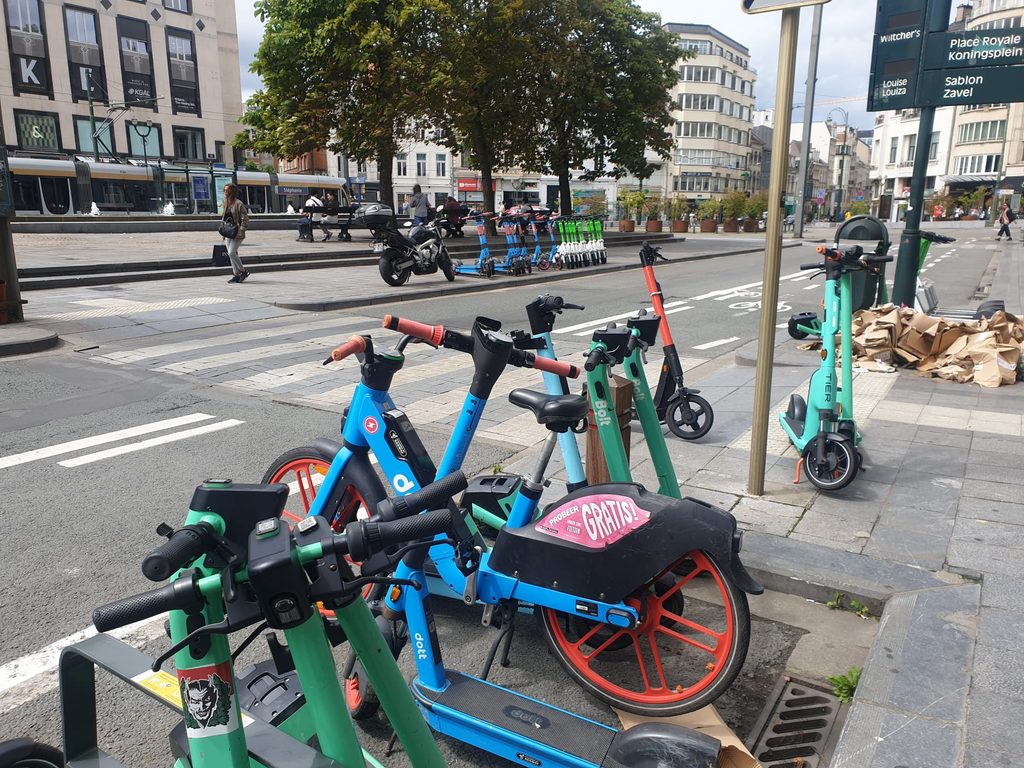Fewer providers, a smaller fleet and a more qualitative service: Brussels Mobility has chosen the companies that will now be allowed to offer shared bikes and e-scooters in the Capital Region.
The Brussels Government approved a new decree for better regulation of shared scooters and bikes in Brussels last summer, aiming to both limit the number of providers and vehicles, and ban parking outside designated zones ('drop zones').
Today, Bolt and Dott were officially elected as the only two providers in Brussels for a total of 8,000 shared e-scooters (compared to over 20,000 currently in circulation). To give the other providers time to adapt, a transition period is planned until 1 February 2024.
"During that period, other providers can look into how they are going to discontinue their services, and where they are going with those scooters," Brussels Mobility spokesperson Inge Paemen told The Brussels Times.
More drop zones
"Some of these providers have more than 3,000 scooters in Brussels. It is certainly not as simple as making sure they just take them off the streets between Christmas and New Year, for example," she added.
In addition to e-scooters, three providers were also picked for shared bikes (Bolt, Dott and Voi, with 2,500 bikes each), two for shared mopeds (Felyx and GO Sharing, with 300 scooters each) and two for cargo bikes (TIER and Pony, with 150 bikes each).
Under the new regulations, users will no longer be able to end their journey outside the so-called 'drop zones', which are currently popping up all over Brussels.
Related News
- City of Brussels to create 450 e-scooter drop zones
- Etterbeek makes drop zones for electric scooters mandatory from next week
- Electric scooter operators shift focus to recycling after Paris ban
In just a few months, Brussels Mobility and the city's municipalities have set up 1,000 of these drop zones – expected to reach 1,500 in the coming weeks.
On 1 February 2024, the system will be operational in 11 Brussels municipalities: Ixelles, Etterbeek, Evere, Ganshoren, Jette, Koekelberg, Berchem-Sainte-Agathe, Saint-Gilles, Woluwe-Saint-Pierre, Auderghem and Watermael-Boitsfort.
For all other municipalities, operators will use their GPS tracking system to lock virtual drop zones in locations chosen by the authorities. The markings will be gradually installed as soon as weather conditions allow.

